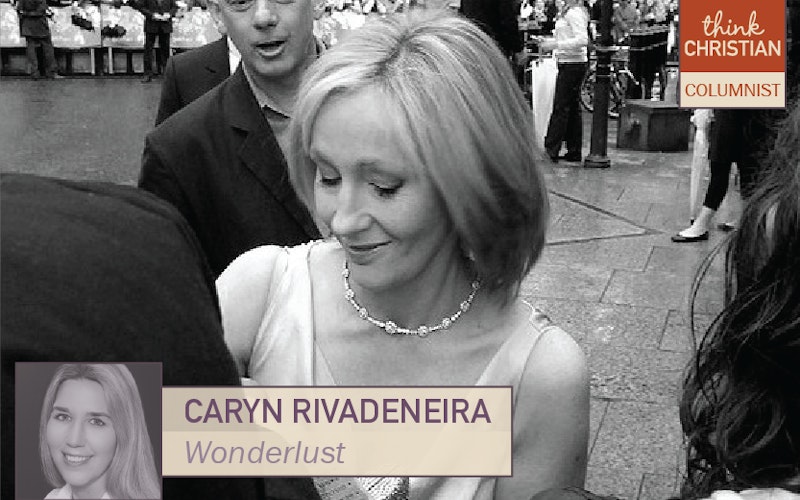
Culture At Large
J.K. Rowling and anonymous art
Years ago I watched a video making waves in mom circles. Author Nicole Johnson stood in the middle of blackness and told the story of a medieval builder who carved a tiny bird deep in a beam in the rafters of one of Europe’s grand cathedrals. Someone came up to this builder and asked why he was wasting time carving something no one will ever see. According to Johnson, the builder replied, “Because God sees.”
The moms who shared the video with me had oohed and aahed, wiped away tears. And I wanted to. I really wanted to. At least, the mom part of me did. Overwhelmed moms (and dads) certainly need the assurance that God sees (and treasures) all the tedious and unseen things we do every day.
But the writer part of me recoiled. While I am in favor of creating art for art’s (and God’s!) sake and do not believe every bit of created matter needs to come with a full-blown marketing campaign, something about the message of this video squared with a faulty message that I often hear as a Christian writer: that writing (or singing or painting or composing or dancing) is most holy when done anonymously.
I thought about this message again this week when J.K. Rowling was outed as Robert Galbraith, author of The Cuckoo’s Calling.
The downside of a nom de plume is that people miss out on knowing us better by seeing God’s creative image reflected in us.
Although I do not believe that writing - or any art or craft - is more holy when anonymous, Rowling’s decision to use a nom de plume showcases one of the big “blessings” of writing anonymously: that is, freedom. While in some ways Rowling is in her own writer universe due to her success, she is just like the rest of us writers in other ways. We all want freedom to write as and what we want. And if there is a downside to being J.K. Rowling, it’s that the popularity and masterfulness of the Harry Potter series hinders that freedom.
In fact, when J.K. Rowling released The Casual Vacancy - her first non-Potter work - I was among those astonished at her bravery. Not only because after writing one of the greatest book series ever and out-selling nearly every book but the Bible, it would stink to have to compete with your own success (on many levels). But also because the genre was so new, so different, so ripe with potential (and realized) disappointment for her fans.
So I imagine when she had a crime story on her heart and mind that needed to get out and a few new characters whose story needed telling, using a pseudonym offered that freedom. The freedom to write beyond the boxes that all writers’ names tend to put us in.
Many writers (myself included) have used pseudonyms for those (and other) reasons. But I don’t believe writers necessarily earn any righteous points for doing this. I don’t believe God is honored more when we practice our crafts and use our gifts without bylines or end credits or scribbled signatures in corners. While it seems humble or demure at face value and seems more likely that we’re just interested in letting God see what we can do, the downside of a nom de plume or anonymous bird carvings or an anonymous tune is that people miss out on knowing us better by seeing God’s creative image reflected in us, in our gifts. Far from giving God more credit, I wonder if it actually gives Him less, when people don’t know what God’s equipped and inspired us to do in this world.
So while I understand why Rowling chose to write anonymously, I’m also thrilled to see her outed. Because now we can stand even more amazed at her writing ability and the God who gave it to her.
Topics: Culture At Large, Arts & Leisure, Books, Art